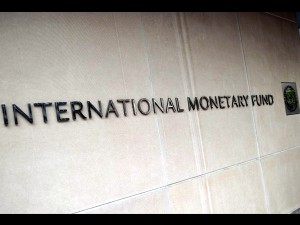Gov’t seen struggling to boost spending
The government’s role in directly pushing economic growth this year remains precarious as authorities struggle to sustain higher spending that could create more jobs and stimulate economic activity.
Multilateral lender International Monetary Fund (IMF) said the economy has performed broadly within expectations so far. What role the government takes in driving the economy—given the state’s recent track record of spending inconsistency—remained uncertain.
“Monthly government spending figures are quite volatile so you can’t read too much into the lower spending in July like you shouldn’t have read too much into the surge in spending in June,” IMF resident representative Shanaka Jayanath Peiris said.
“If government spending accelerates a lot in the next few months, it could be an upside risk to our growth forecast especially if public investment increases as it has a higher multiplier,” he said in an e-mail to the Inquirer.
The IMF sees the economy growing by 6.2 percent this year, which is slower than the Aquino administration’s official 6.5 to 7.5 percent target. In the second quarter of 2014, gross domestic product (GDP) expanded by 6.4 percent, accelerating from January to March’s 5.6 percent.
Economic growth was driven mainly by unusual boosts in the manufacturing and agriculture sectors, complementing the country’s traditional strengths of services and consumption. State spending was a disappointment, staying flat from the same period last year.
A growth of 6.9 percent in the last semester of 2014 is needed if state targets are to be achieved, according to Economic Planning Secretary Arsenio Balisacan said.
In the first six months, the government’s deficit was up by a modest 5 percent due to sharp spending slowdowns seen in April and May that were offset in June. The state’s deficit shrank by 97 percent in July as the government failed to sustain spending increases seen the month before.
Peiris said the IMF was sticking to its growth forecast for the Philippines for now, although he admitted that the second-quarter number showed a pickup that was “slightly more than expected.” Nonetheless, the standing projection takes into account a recovery after the first quarter, Peiris said, saying the IMF was not being conservative in its assessment.
In the remaining months of the year, Peiris said the government should focus its efforts on both soft and hard infrastructure, which do not only create jobs in the near term but also raises the economy’s potential productivity in the long run.
“Public infrastructure investment and social spending to raise human capital is important to raise medium-term potential growth and sustain a higher growth path with low inflation,” Peiris said.















